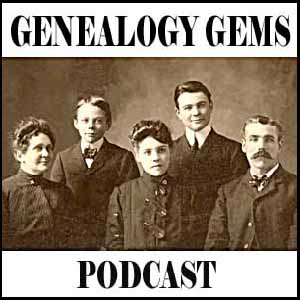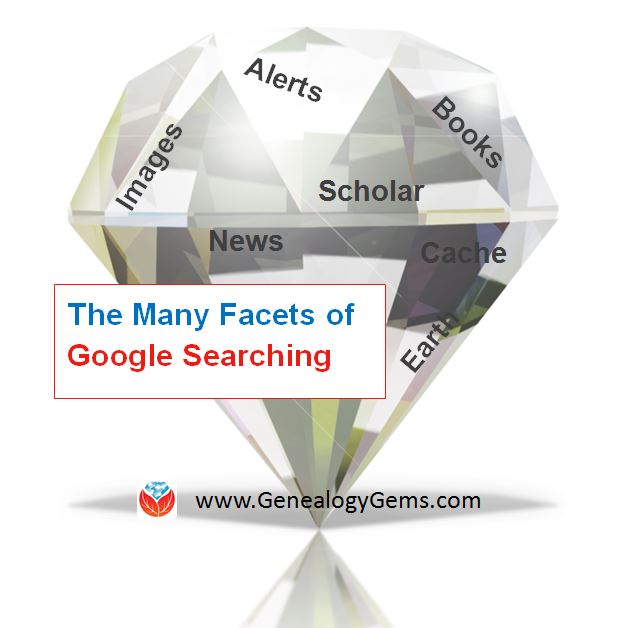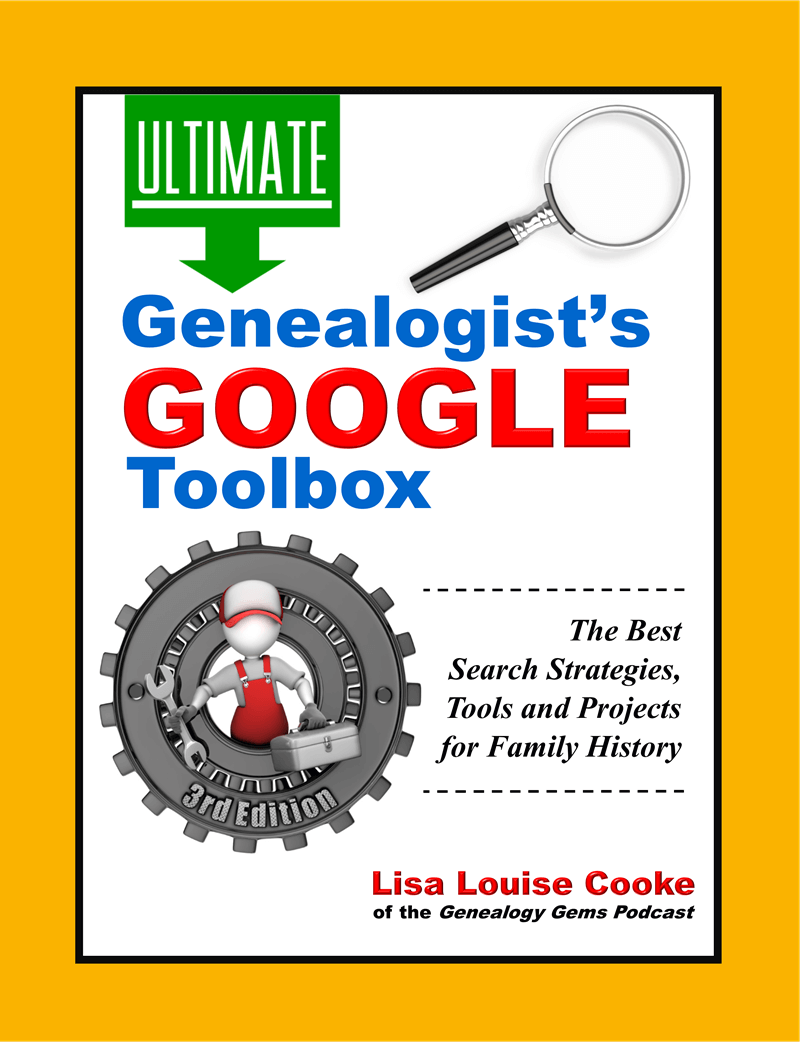Season Three
 The Genealogy Gems Podcast Episodes
The Genealogy Gems Podcast Episodes
2008 – 2009 Season Three
Scroll to the bottom of each Podcast Show Notes Page and click the episode mp3 file to download the episode for listening. It will take a minute or two for the episode to download, and it will open in your computer’s audio program (for example: Quicktime or Windows Media Player.)
Episode 41 Listen & Show Notes
Family History Expo Wrap-Up, California Voter’s Database at Ancestry and Day of the Week Tool, Mailbox, Lulu, Valentine For You: Stories of Love
Episode 42 Listen & Show Notes
Family Tree Magazine, Genline, and another great Venice Song
Episode 43 Listen & Show Notes
Genealogy at Borders, Roots Television Interview, the new U.S. Census Bureau History Website, and Crossword Puzzle
Episode 44 Listen & Show Notes
Canadian Border Crossings, Godfrey Memorial Library, U.S. Census Bureau, and Digital Preservation Cheat Sheet
Episode 45 Listen & Show Notes
Prison stories & research, Google customization, & Free British Records
Episode 46 Listen & Show Notes
A listener’s Leatherhead, Handwriting Analysis, and Genealogy Gems Premium.
Episode 47 Listen & Show Notes
A Walk Through Childhood Memories, Family Tree and Me Displays, Girding Your Loins with James Mowatt of the Historyzine Podcast, Birthday Alarm Website, Ancestor Handwriting Analysis Winner and a new analysis of a single signature by Paula Sassi, Announcement of the NEW Family Tree Magazine hosted by Lisa Louise Cooke.
Episode 48 Listen & Show Notes
Lisa’s exclusive interview with Kathy Lennon of The Lennon Sisters. Kathy discusses her passion for family history and the Lennon family tree. Also, Paula Sassi analyzes the handwriting of our contest winner’s ancestor. Plus a new look for the Genealogy Gems Podcast Newsletter.
Episode 49 Listen & Show Notes
A great idea for genealogy societies, new Family Tree Magazine Podcast episode and Lisa’s genealogy podcasting article and videos for the magazine, Train Robbery History, Part 2 of Lisa’s interview with Kathy Lennon of the famous Lennon Sisters from the Lawrence Welk Show, Premium Discount, Handwriting Analysis opportunity and the Best Pals Contest.
Episode 50 Listen & Show Notes
The Louise Carousel, Amos Alonzo Stagg, A Little Genealogy Daydreaming with genealogy podcasters, Interview with Tim Russell of A Prairie Home Companion, America’s first radio stations, Handwriting analysis of a victim of the 1918 Spanish Flu epidemic, State Fair History, Best Pals Dolls Winner Announcement, and Upcoming Conferences.
Episode 51 Listen & Show Notes
Interview with Jim Beidler, Chairman of the FGS 2008 Conference, The History of the Ice Cream Cone, Discount on Premium Membership, Mac Minutes with Ben Sayer, The MacGenealogist, Favorite Genealogy Sayings, Census Abbreviations.
Episode 52 Listen & Show Notes
Gems From Across the Pond: Interviews with genealogy author and lecturer Rick Crume, and British Records Specialist Dr. Christopher T. Watts, and British History Podcasts.
Episode 53 Listen & Show Notes
Virginia Halloween History, Mailbox, Navy History, Interview with Yvette Arts of World Vital Records & Search Tips, Chips the U.S. War Dog, The MacGenealogist reviews iFamily for Leopard, and Name That Tune!
Episode 54 Listen and Show Notes
New podcast launch: Family History: Genealogy Made Easy, History that puts a little cash in your pocket, Interview with the Forensic Genealogist Colleen Fitzpatrick, Some Ideas on Creating family traditions and Heirlooms, The MacGenealogist, Another Linguistic History Trivia Bit, and Name That Tune Round 2!
Episode 55 Listen and Show Notes
Genealogy News, New Google Gadgets, Discover the census records you probably aren’t using, but should with Curt Witcher of the Allen County Library, Taxing Bachelorhood, and Name That Tune Round 3!
Episode 56 Listen and Show Notes
The 2009 Genealogy Gems Christmas Podcast
Episode 57 Listen and Show Notes
Frisbee & Fuller Brush History, Southern California Genealogical Jamboree, Interview with Sally Jacobs the Practical Archivist on Photo Preservation
Episode 58 Listen and Show Notes
Review of Behind the Scenes with Ancestry, Exciting New Records Online, Income Tax History, Creating a Family History Valentine, Lisa answers Listener Questions
Episode 59 Listen and Show Notes
Review of new online records, The First U.S. Presidential Photograph, Interview with Holly Hansen of Family History Expos, GenClass with Lisa Alzo, Number Please?
Episode 60 Listen and Show Notes
We celebrate the 2nd birthday of the podcast with our special guest Darby Hinton who starred in the 1960s TV show Daniel Boone. Lisa also makes recommendations to a listener on her Bristol Brick Wall.

 Google is a many-faceted gem when it comes to searching for ancestors online. Are you getting the most out of what Google offers?
Google is a many-faceted gem when it comes to searching for ancestors online. Are you getting the most out of what Google offers?
